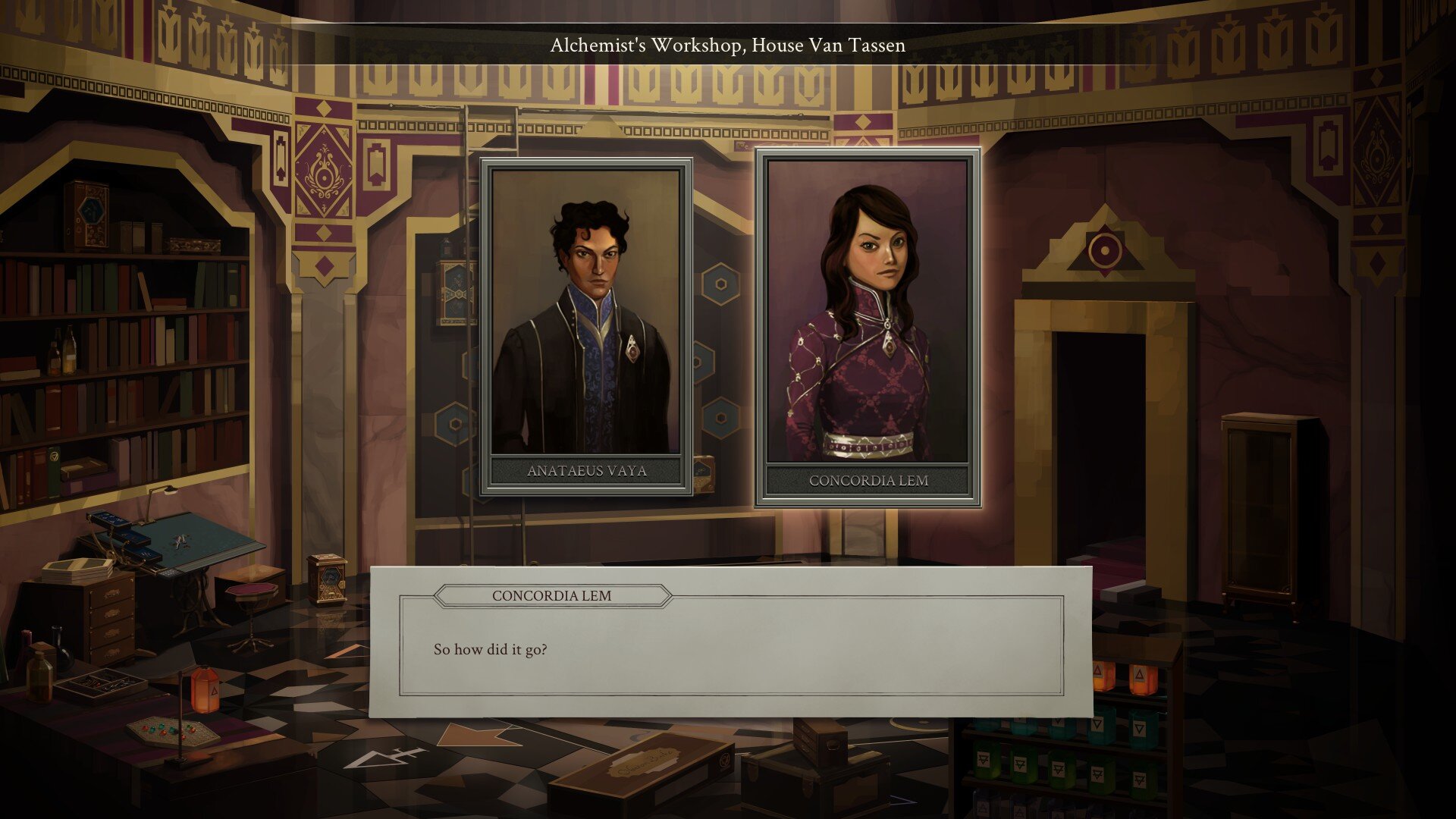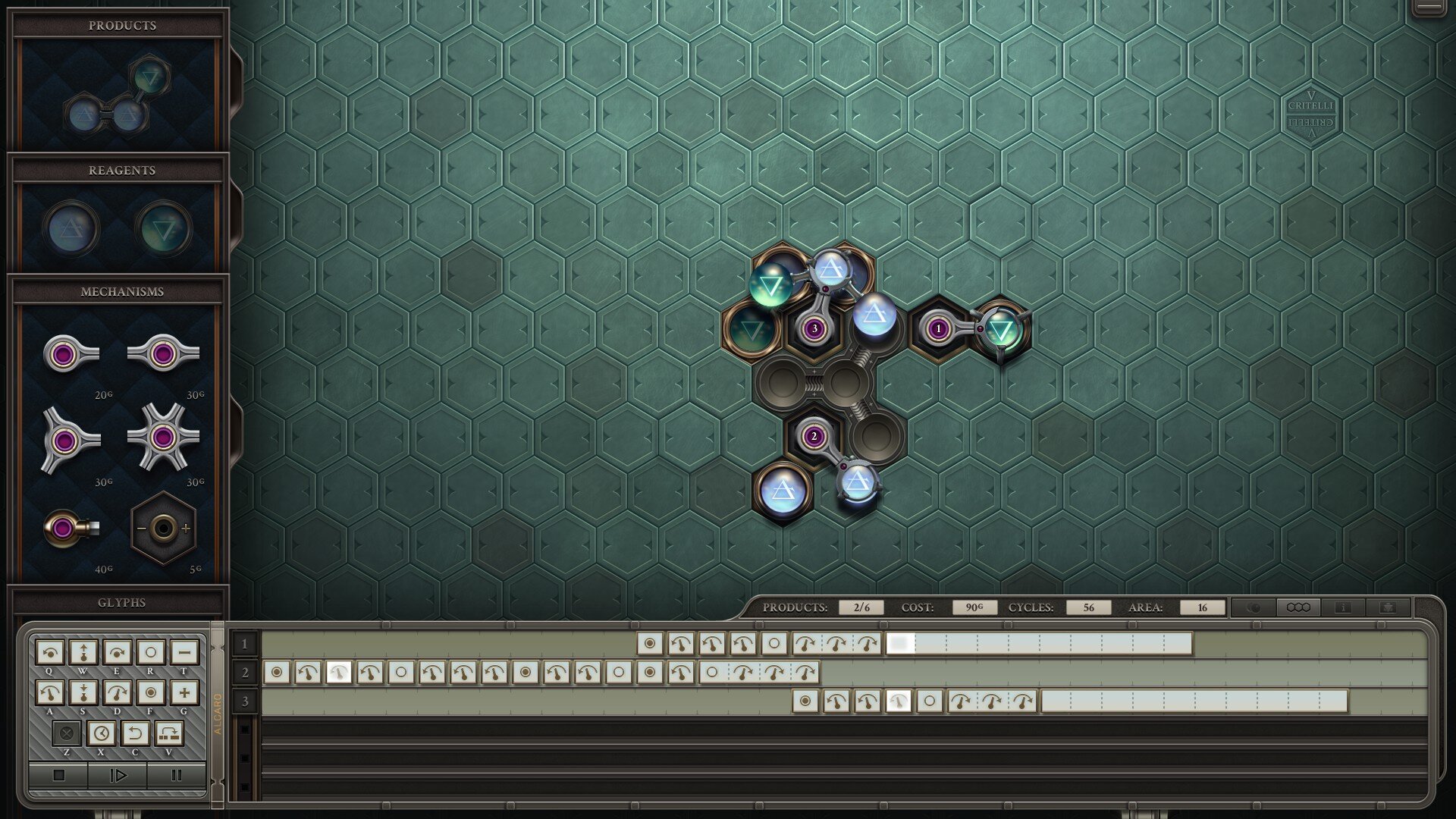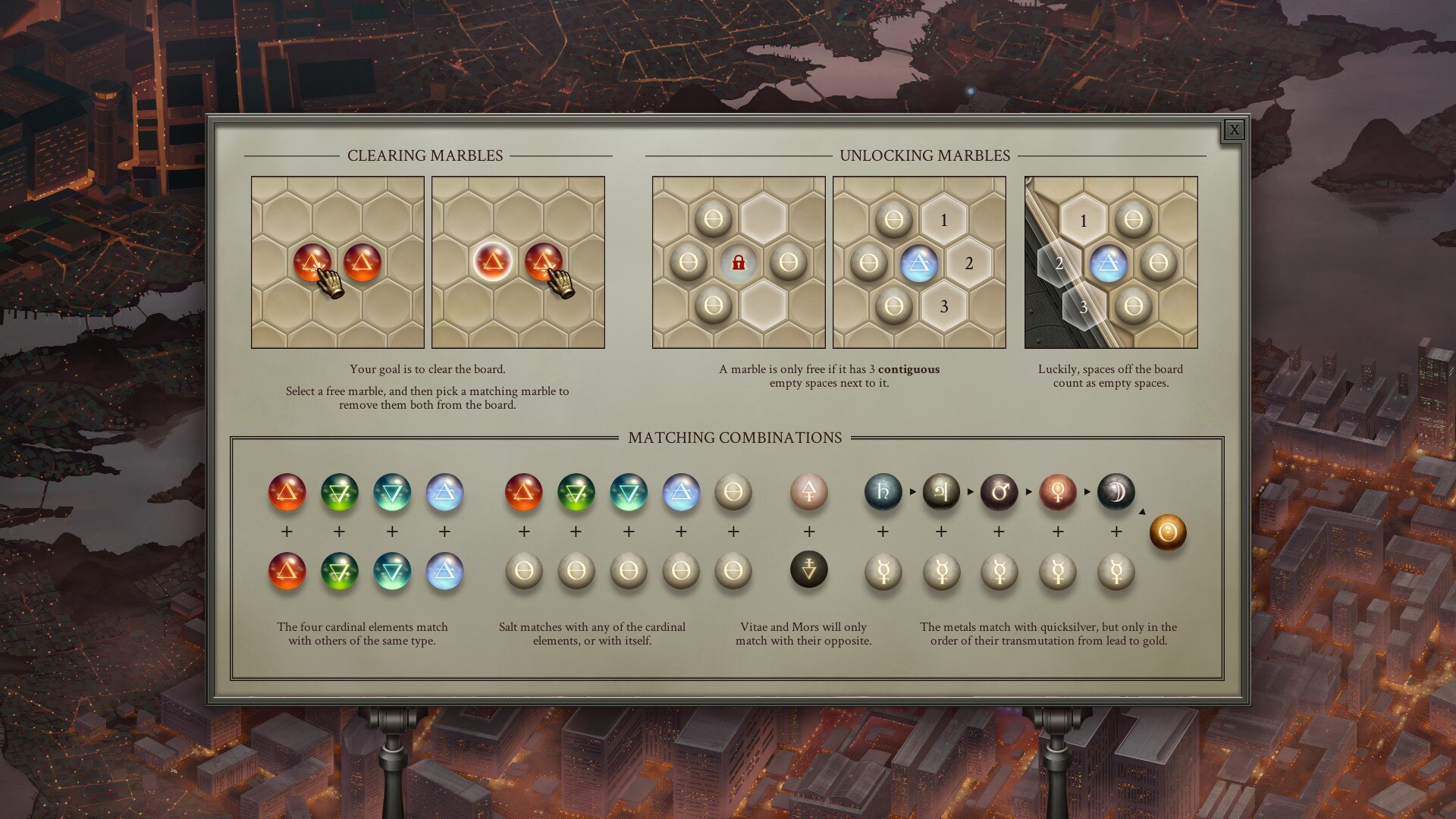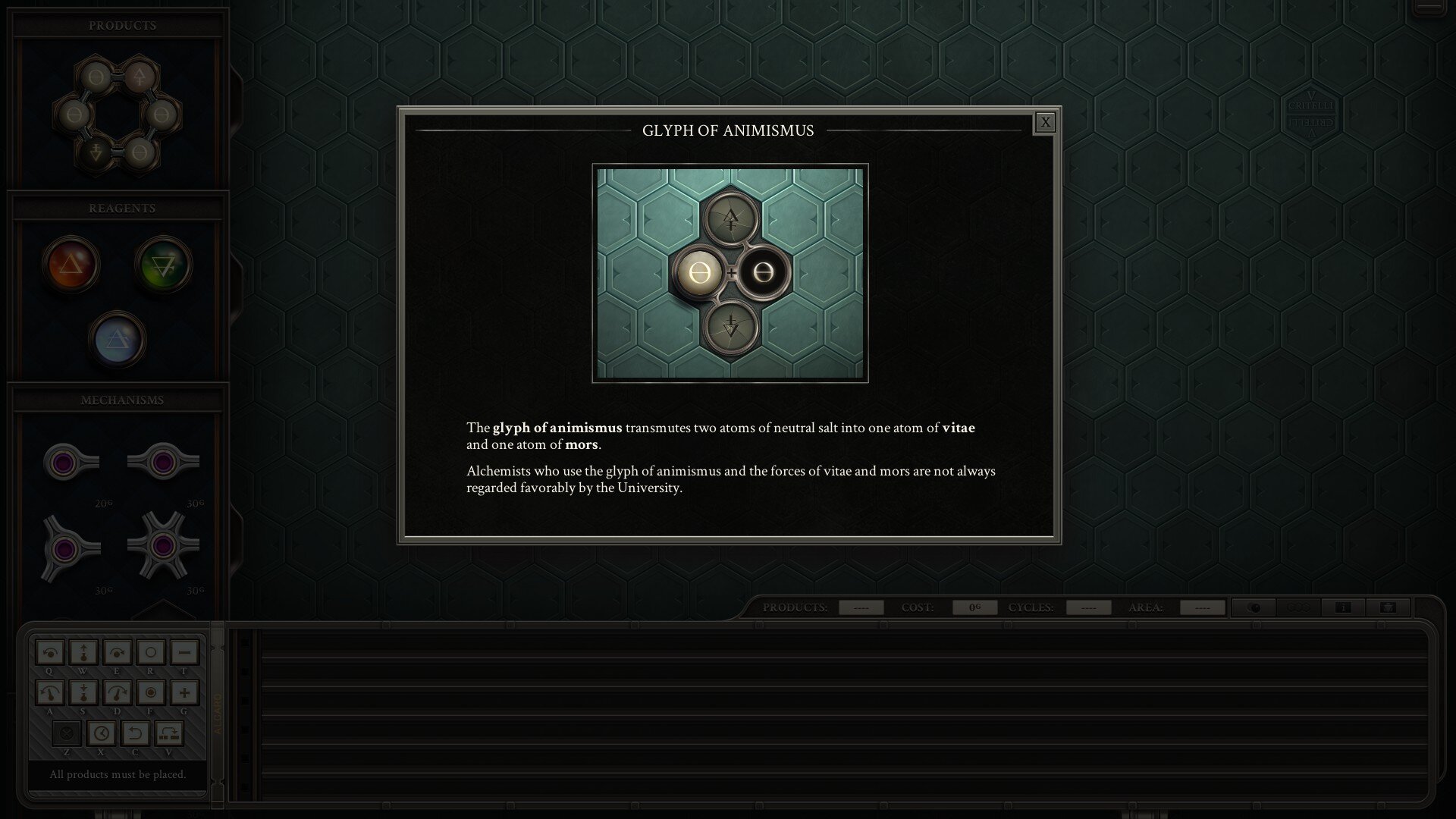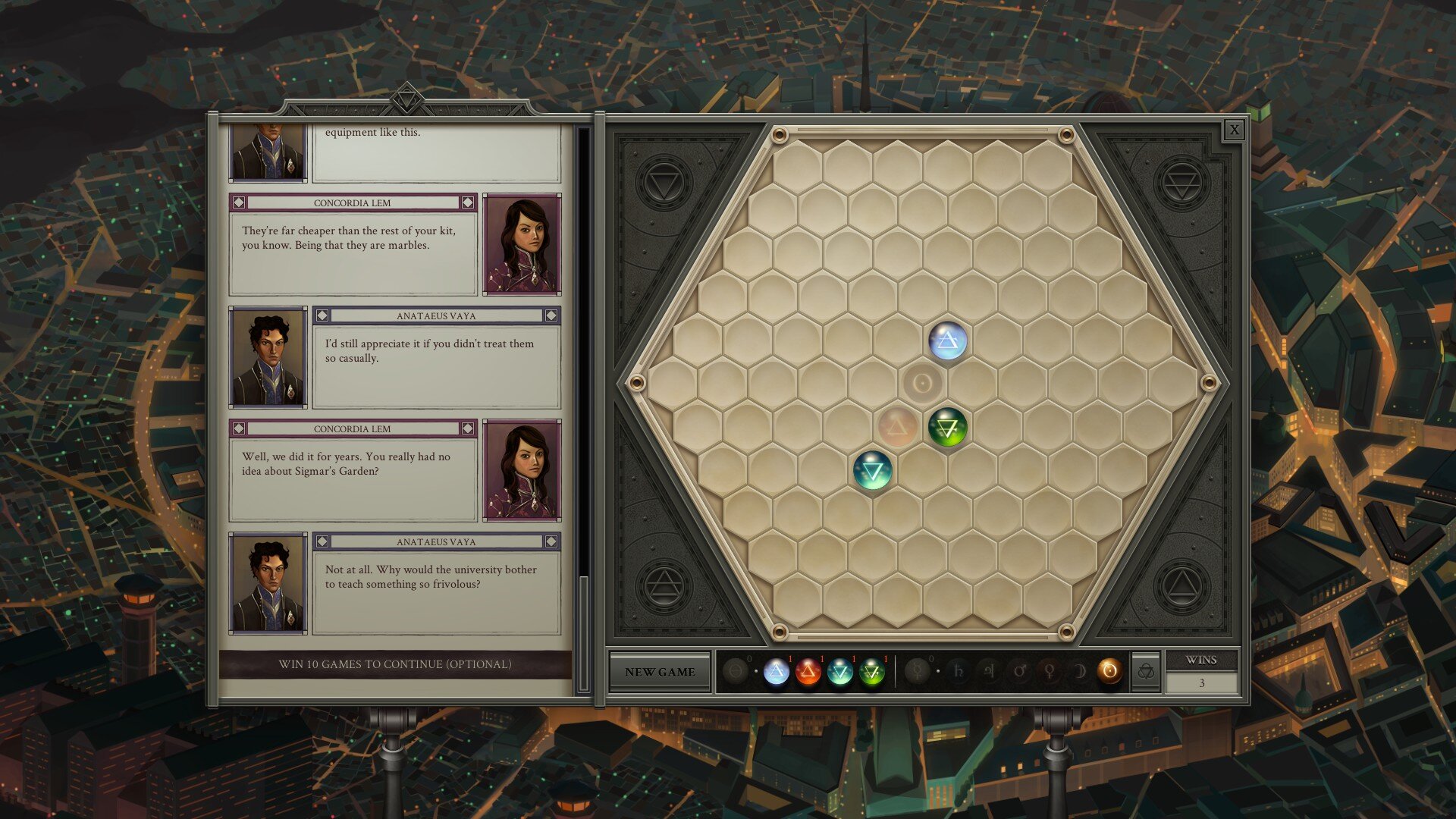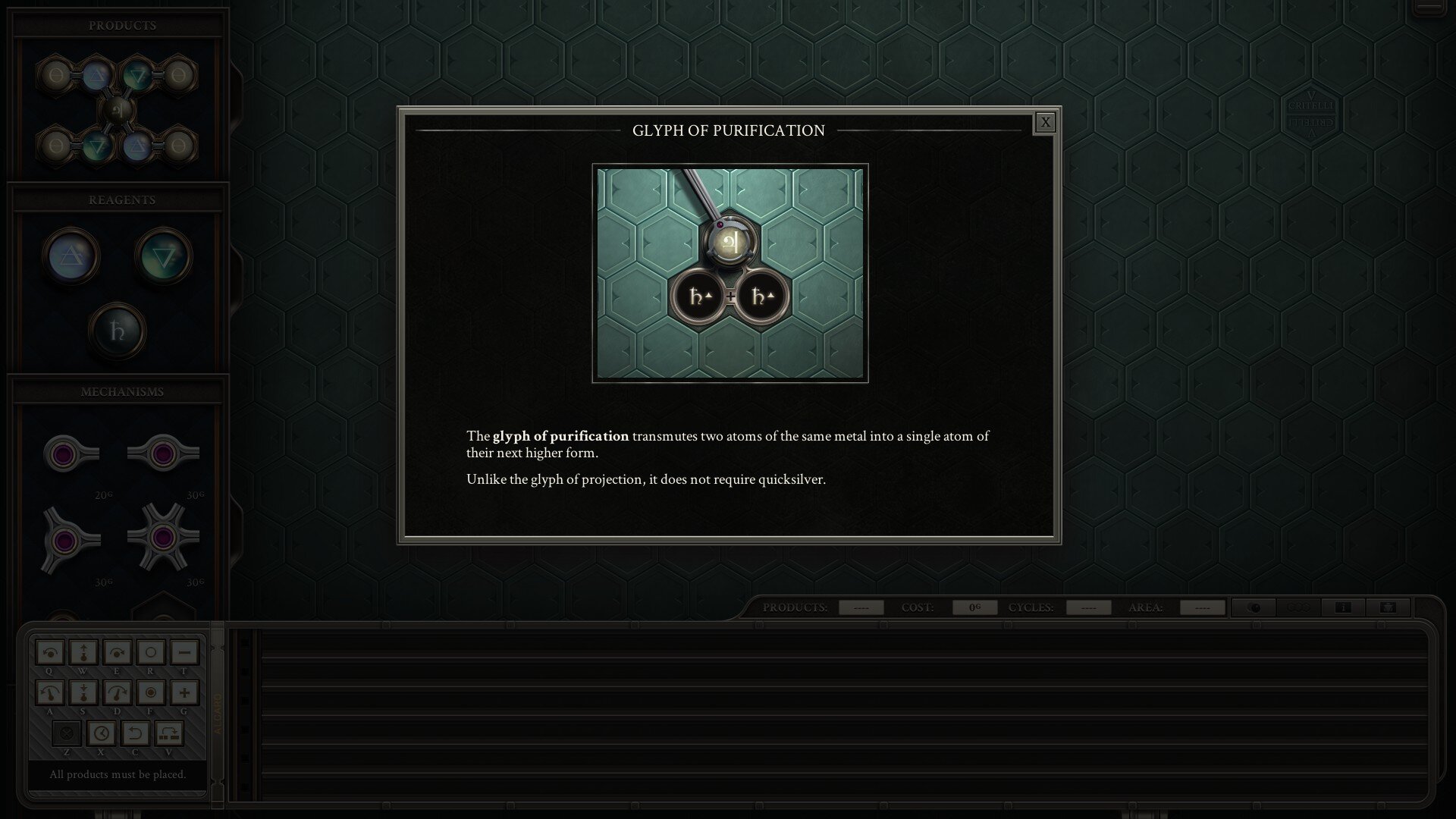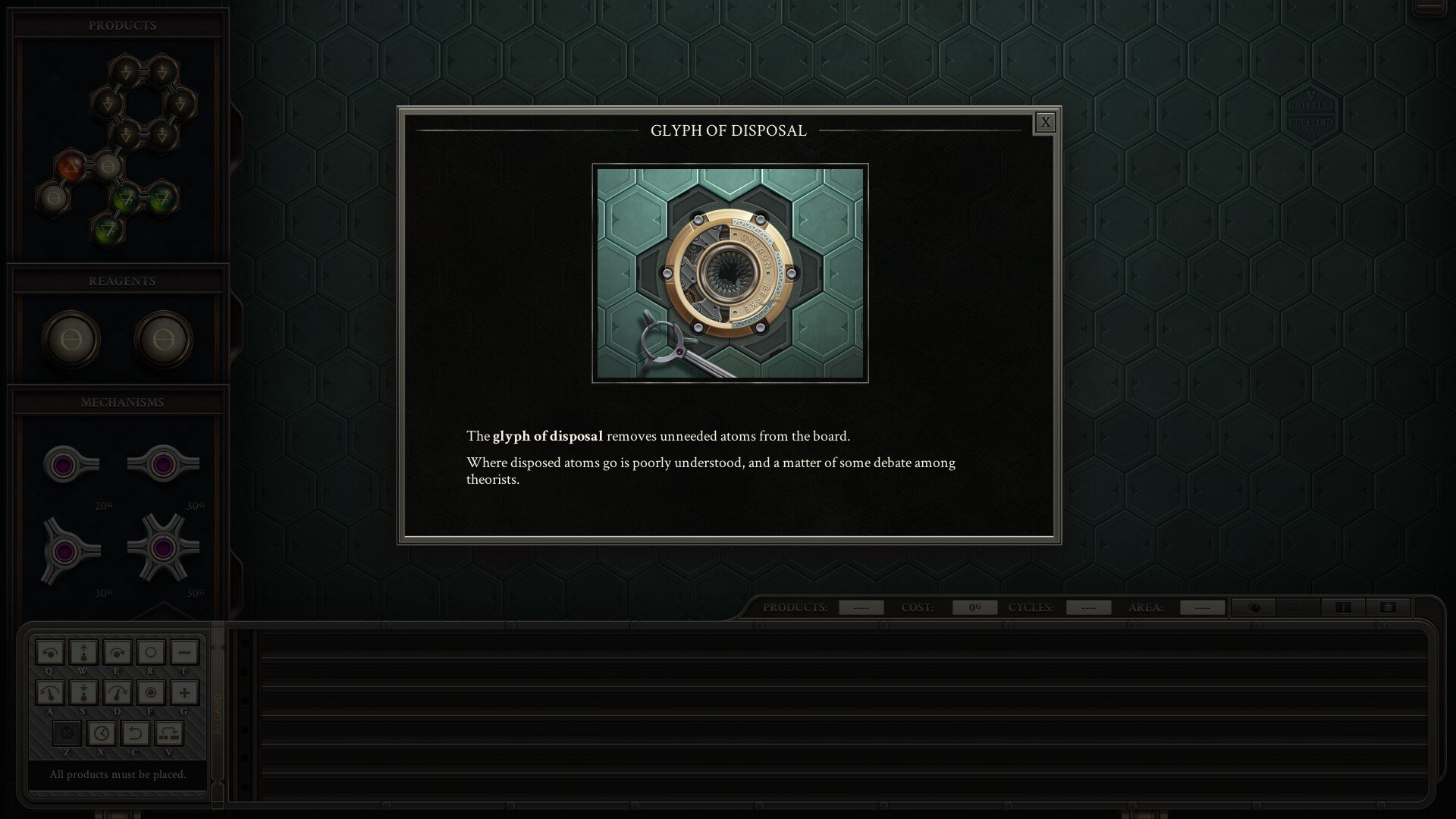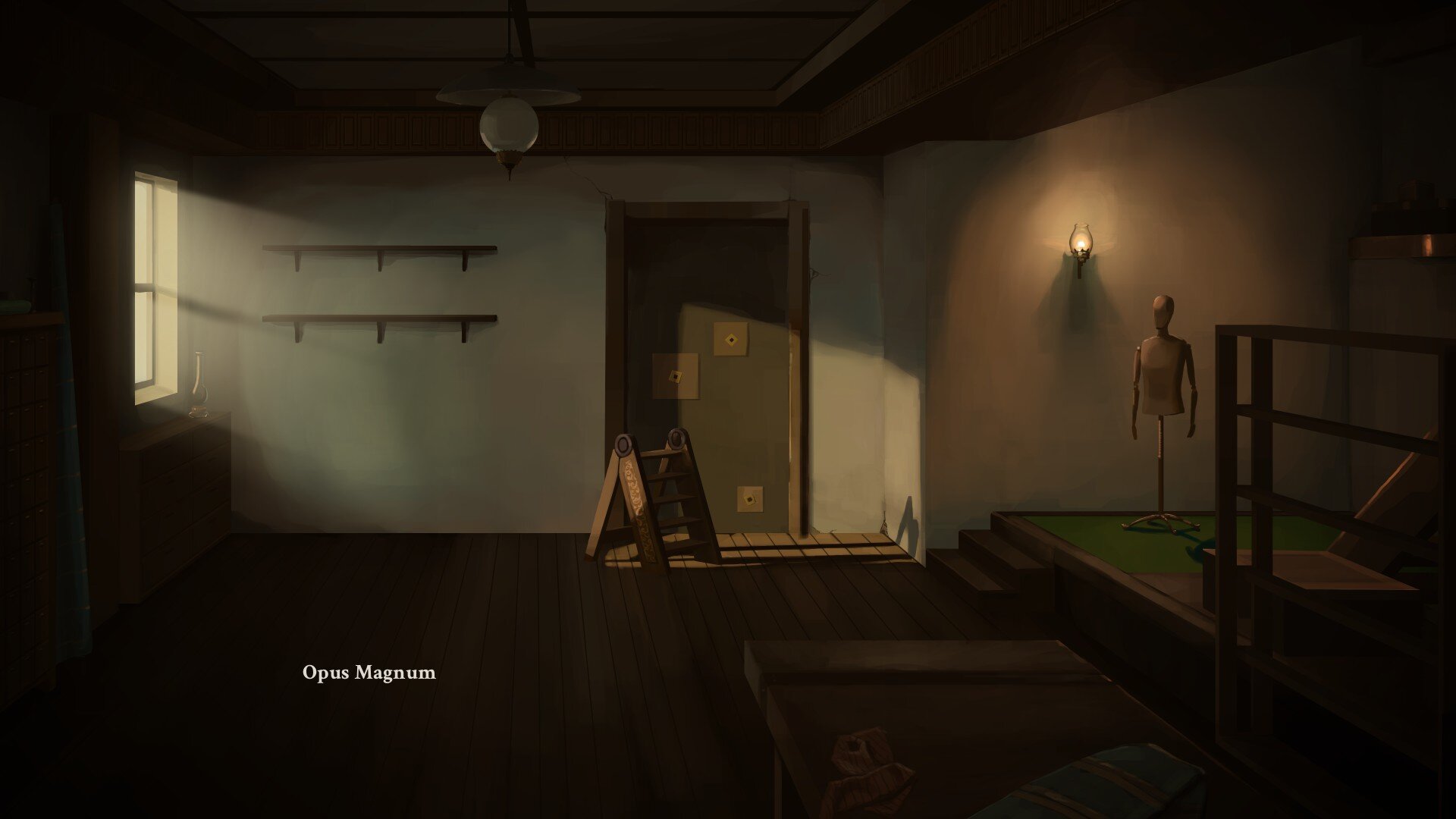Opus Magnum is a wonderful puzzle game by Zachtronics about creating alchemical products using reagents and tools that you can program. I didn’t get too much into the whole ‘optimization’ thing this time around, but I did beat the game and some of the optional puzzles. It was a ton of fun and I would 100% recommend it to everyone who enjoys puzzles in the slightest. The export to gif feature (which allows you to create animated gifs of your solutions) is also genius.
The game starts fairly simple with some basic puzzles. You have a few reagents and need to move them around a little to transform them into the desired product. In order to do so, you have a few mechanisms that will allow you to grab, rotate and move the pieces of your product around. This all works by programming your mechanisms with a simple ‘language’ comprised of a small number of actions such as “Rotate mechanism left” “extend” “grab” and “move on the positive direction of a track”. You can do pretty much everything with these functions, but complexity grows from puzzle to puzzle with the amount of things you have to deal with and how you setup your workspace. At the end of each puzzle you’ll be scored on the cost of your equipment, the space taken and the number of actions required to produce your results, which is then shown on neat graphs and friend leaderboards.
The complexity also comes from the glyphs you need to use to solve certain problems. The most basic ones link two atoms together (or unlinks them) but in order to create metals, for instance, you need a special glyph that consumes quicksilver to promote metal to a higher tier. Sometimes you’ll need to triple-link things together. Sometimes you have to turn your elements into salt, sometimes you don’t have elements and need to use a special wheel to create one. This is more or less always supported by the story, which is engaging enough to feel welcome here. There’s also a small mini-game about clearing marbles on a board, which is neat.
I only had a few issues with the game; first, I don’t enjoy how, by default, a line of commands will not reset itself before looping, this means you always need to add ‘reset’ commands to your mechanisms when you’re testing stuff up and you don’t want them to act weirdly. Secondly, looping is a bit clunky and there is no great way to control how many times instructions will loop, which can be an issue if you’re doing the same thing over and over in the same set of instruction; you have to place them all by hand. It also would’ve been nice to be able to start at any point of your commands to test how things are at a specific time. There are all very minor complaints for a game I thoroughly devoured.
Play Opus Magnum! It’s a really good puzzle game and if I managed to get to the end, you certainly can do the same! I did some of the optional puzzles, but couldn’t get into the restricted-space ones, I just don’t see how they’re possible!


